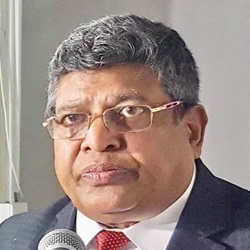
Shaikh: Aspect of will raised suspicions
The supposed beneficiary of a will of a deceased solicitor that cut out his daughter failed to establish that it is genuine, the High Court has ruled.
Caroline Shea KC, sitting as a deputy High Court judge, said reference in Monir Jaman Shaikh’s will, which he purportedly drafted, to property and assets in Pakistan was particularly suspicious given that there was no evidence the Bangladeshi-born solicitor had any there.
Mr Shaikh, who was born in 1956, had been a practising lawyer in Bangladesh before moving to the UK in around 1992.
He was called to the English bar in late 2008 and then requalified as a solicitor five years later, and with another partner set up PGA Solicitors in East London. He became the sole owner in 2016 and remained the principal until his death from Covid in April 2020, shortly before his 64th birthday.
His only child, Mosammat Shapna Khatun, challenged the authenticity of the will, which bequeathed the long-divorced Mr Shaikh’s entire estate to Shamim Hasan, an IT consultant who with his wife was a tenant in a property which Mr Shaikh owned and where he lived too.
Mr Hasan said he only became aware of the will some weeks after the solicitor’s death, when Rajesh Pathania – a struck-off solicitor who was a friend of Mr Shaikh’s and the sole executor of the will – turned up at his door to tell him.
Ms Khatun alleged that it was “inherently improbable” that Mr Shaikh would have bequeathed his entire estate to Mr Hasan and that the will was a forgery.
Judge Shea said that the will “as a whole does not present as the work of an accomplished lawyer”. As well as minor spelling mistakes, it bequeathed the residue of an estate without making a primary bequest in relation to which the remainder could be residuary.
She found the circumstances surrounding the alleged execution of the will “sufficient to arouse suspicion”.
These included the “surprising” absence of any documentary records about its execution and no explanation as to why Mr Shaikh would draft the will himself but give it to Mr Pathania to store, “when the (unchallenged) evidence was that he entrusted all his legal work to J Stifford Solicitors”, another East London law firm.
This meant that the onus fell on the defendants to prove that the will was genuine and Judge Shea ruled that they failed to do so.
“Beyond the matters arousing suspicion, there are other significant deficiencies in the evidence which undermines the defendants’ case, fatally in my judgment,” she said.
“First and foremost is the lack of any contemporaneous documentary material to establish the matters on which they rely.
“I have already referred to the absence of phone records and similar to support the claim that Mr Shaikh called Mr Pathania and Mr Alam [the witness] to arrange the meetings with them which allegedly led to the drafting and execution of the disputed will.
“Also absent are any computer records, hard drive analyses, cloud data or metadata to support the claim that Mr Shaikh drafted the disputed will on his computer. Neither was there any account of why such evidence was not available, or could not be harvested; nor of any steps taken to secure access to Mr Shaikh’s computer or any backup systems.
“Given such evidence could, if it existed, have been conclusively probative of the defendants’ case, its absence is significant in terms of assessing whether the defendants have discharged the burden of proof.”
There was “scant” evidence of the closeness of the relationship Mr Hasan claimed to have with Mr Shaikh, while the defendants also failed to establish that Mr Shaikh was estranged from his daughter. However, the judge noted, “were the onus to have fallen on her, I do not consider she has produced sufficient evidence to show that they were still on friendly and familiar terms”.
But the latter issue was not determinative and Judge Shea placed weight on the reference in the will to properties owned in Pakistan when Ms Khatun’s evidence was that he did not have any.
“There is no conceivable reason, short of a disturbance of the mind (not something suggested by any party), that he would identify as assets properties he owned in a country in which he owned no property.
“No explanation has been provided for this mistake appearing in the disputed will, and importantly it was not denied that it was a mistake.
“The most likely answer is that the disputed will was not written by him, or at his direction, or with his knowledge. If I had any hesitation (which I do not) in reaching my conclusion that the defendants had failed to discharge the burden of proof, this last factor would seal such a conclusion.”
Photo sourced from a Facebook post of the International Lawyers Association
















Leave a Comment